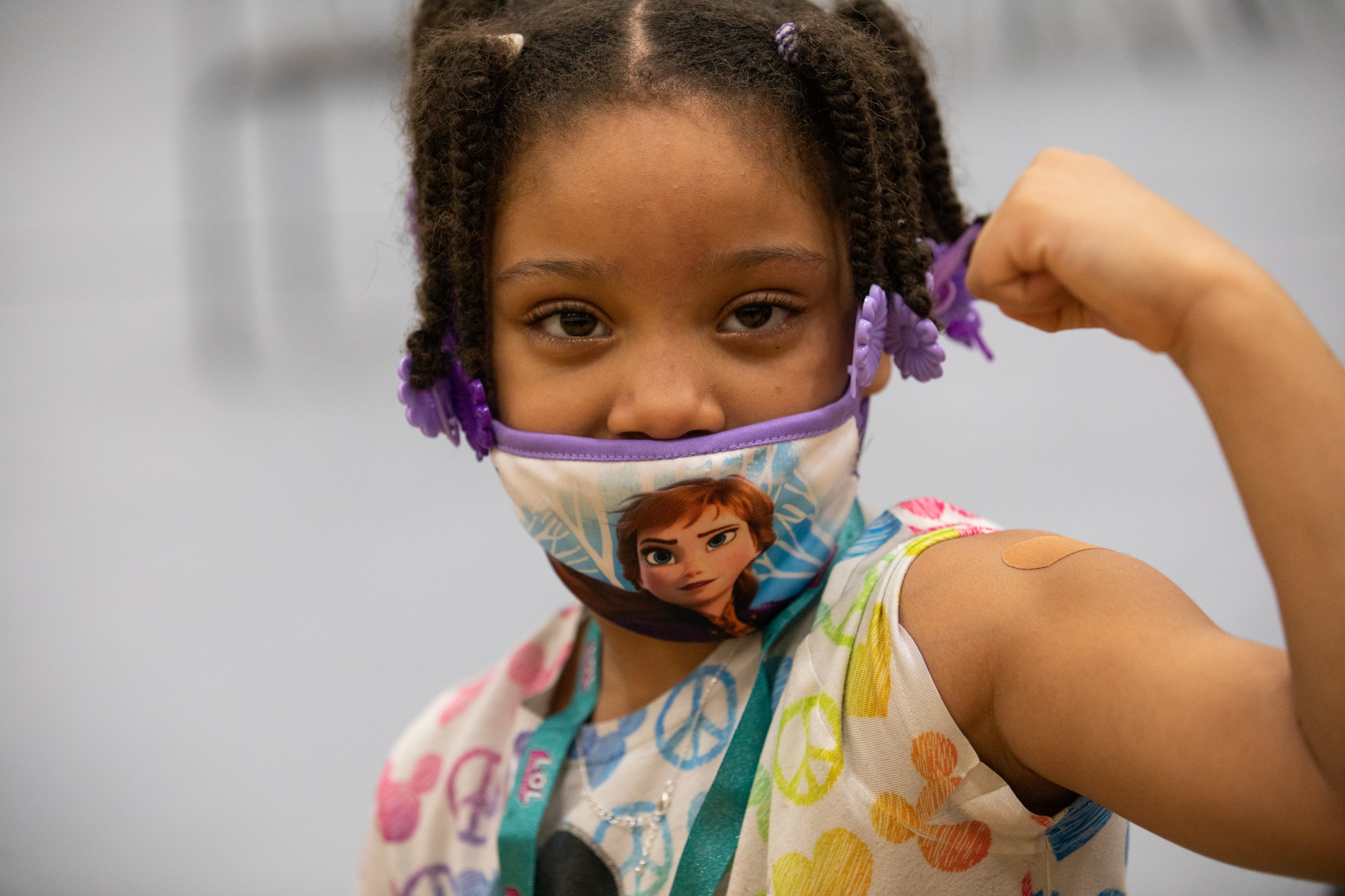Illinois’ unvaccinated school and child care staff are no longer required to test for COVID infections weekly – a policy change officials attributed to an uptick in vaccinations.
The move comes as more young children in the state are getting vaccinated against COVID-19.
“Vaccination continues to be the most effective tool we have against COVID-19,” Gov. J.B. Pritzker said Thursday evening in a press release, “I’m proud that millions of Illinoisans have taken advantage of these life-saving vaccines — they have given us the ability to adjust these requirements.”
Throughout the last school year, school employees who weren’t vaccinated were required to test at least once a week until they could prove that they were fully vaccinated. Some local school districts, including Chicago Public Schools, started this school year with fewer COVID-19 restrictions for school employees and students.
The state’s new testing policy aligns with the federal Centers for Disease Control and Prevention’s guidance from August, which no longer requires routine testing in schools or child care settings regardless of vaccination status. However, the CDC recommends that schools consider testing at times of high risk of spreading COVID-19 in the community, such as a return from winter break or after large indoor events.
This is the first school year where all children from 6 months to 18 years old can be vaccinated against COVID-19. The state’s current data shows that vaccination rates for children are slowly increasing.
As of Sept. 14, 9% of Illinois children under 5 — or about 62,300 children — had received their first vaccine dose. That’s 3.4% more than in late July when 39,000 — or 5.6% — had gotten a first dose.
The state department of public health has yet to publicly report numbers for children under 5 who are fully vaccinated. Young children who receive the Moderna vaccine must take two doses four weeks apart, while the Pfizer vaccine requires three doses over the course of 11 weeks.
As of Wednesday, 30.8% of Illinois children between 5 and 11 had been fully vaccinated, out of a population of more than 1.1 million. Of students between 12 and 17, 42.2% were fully vaccinated, out of a population of 1 million.
State superintendent Carmen Ayala and presidents of the state’s two largest teachers unions — the Illinois Federation of Teachers and Illinois Education Association — support the state’s change in requirements for school employees as staff and students are getting vaccinated against COVID-19.
As with adults, children 12 and older can also get boosters developed by Pfizer BioNTech. These new bivalent vaccines protect against the omicron variants — currently the most common.
Chicago children are more vaccinated than the rest of the state across all age groups. In the city, 73% of 12- to 17-year-olds, 49.1% of 5- to 11-year-olds, and 4.4% of children under 5 had completed the vaccine series as of Sept. 12, according to the Chicago health department.
While the state no longer requires unvaccinated staff to get tested weekly for COVID-19, many districts continue to offer opt-in testing to students.
The state health department said it made 1 million free rapid COVID tests available to schools earlier this year and 160 school districts have opted into the University of Illinois system’s’ SHIELD testing program — which allows districts to test students regularly at no cost to the district. So far, almost 50,000 tests have been given since the beginning of this school year.
The state health department has said it is working with local health departments to continue to vaccinate children.
Samantha Smylie is the state education reporter for Chalkbeat Chicago, covering school districts across the state, legislation, special education, and the state board of education. Contact Samantha at ssmylie@chalkbeat.org.






